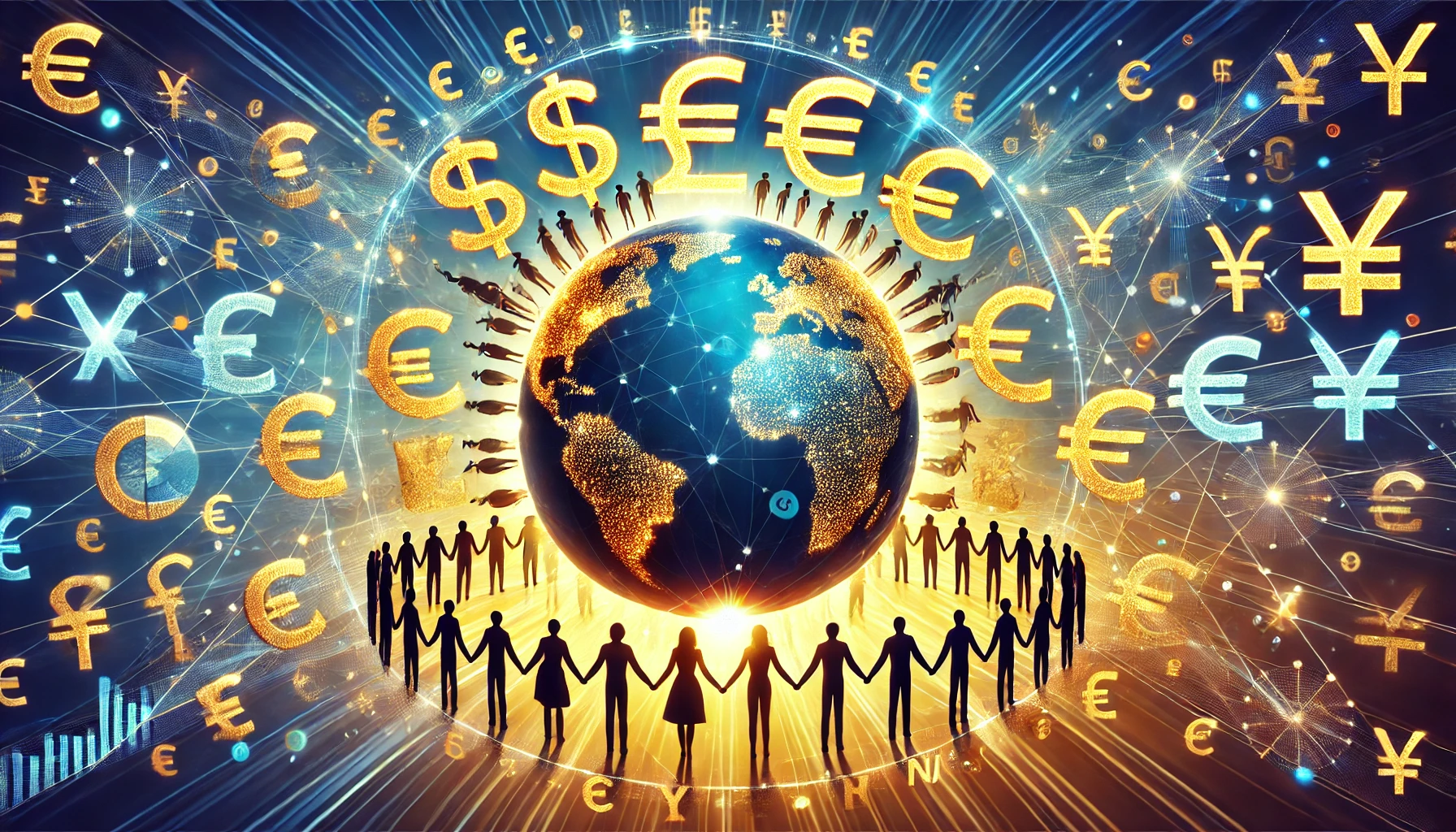![]()
Understanding the RV (Revaluation of Currencies)
A Step Toward Global Equality
The RV, or Revaluation of Currencies, refers to the idea of adjusting the value of currencies worldwide to promote a more balanced and fair global economy. This process could play a key role in reducing economic inequalities between nations, fostering prosperity, and creating a world where resources and opportunities are more equitably distributed.
What is Revaluation?
Revaluation involves changing the exchange rate of a country’s currency in relation to others. For some countries, it means increasing the value of their currency to reflect economic strength accurately. For others, it may mean slight downward adjustments to align better with global standards.
Why is it Needed?
Economic imbalances have created significant gaps between developed, developing, and underdeveloped nations.
- Example 1: Many developing countries, such as Zimbabwe and Venezuela, have faced severe inflation and devaluation of their currencies, leaving their citizens with limited purchasing power.
- Example 2: On the other hand, some wealthier nations benefit from stronger currencies that allow them to dominate trade and resource acquisition.
The RV aims to level this disparity, giving undervalued nations a fair chance to participate in the global economy.
How Could It Work?
Countries with undervalued currencies, like Iraq’s dinar or Vietnam’s dong, may see their values adjusted upward as part of the RV process. This would increase the purchasing power of these currencies, encouraging investment and trade. For instance:
- Iraq: With one of the world’s largest proven oil reserves, Iraq’s economy has immense potential. An RV could help the Iraqi dinar reflect the true wealth of the nation.
- Vietnam: Known for its rapid economic growth and manufacturing prowess, an RV of the Vietnamese dong could attract more international investment and bolster the middle class.
Conversely, stronger currencies like the US dollar or Euro may experience slight adjustments to balance the global market, fostering fairer trade.
Benefits of the RV:
Trade Fairness: Nations with undervalued currencies could trade more effectively on the global stage.
Reduced Poverty: Adjustments could enhance the buying power of millions in poorer countries.
Balanced Resources: A fair currency valuation ensures resources are distributed more equitably.
Economic Stability: Global markets could become less vulnerable to extreme fluctuations, creating a more sustainable future for all.
The Global Impact:
Imagine a world where resources like food, clean water, and energy are accessible to more people because currencies accurately reflect each country’s true economic value.
- Example: A family in a developing country could suddenly afford education and healthcare that previously seemed out of reach.
- Example: Small businesses in undervalued regions could thrive by exporting goods without facing unfair currency conversion penalties.
What Are the Challenges?
The RV is a complex and delicate process requiring international cooperation, transparency, and careful planning. Governments, global financial institutions, and markets must work together to implement it effectively.
Why It Matters:
The RV is more than just a financial adjustment—it’s a vision for global equality. By recalibrating the financial playing field, we can create a world where nations collaborate, resources are shared more equitably, and opportunities are accessible to all.
What do you think about the RV? Could this be the key to a fairer global economy?

Please support this journey by sharing.
It’s more important than ever, to work closer together to help make the World a Better Place
Let’s get ahead of the scammers and keep people safe!
grahamhodsdon.com is Proudly powered by WealthyAffiliate
If you want to learn how to produce your own site easily and effectively Wealthy Affiliate has the best community in the world for this.

